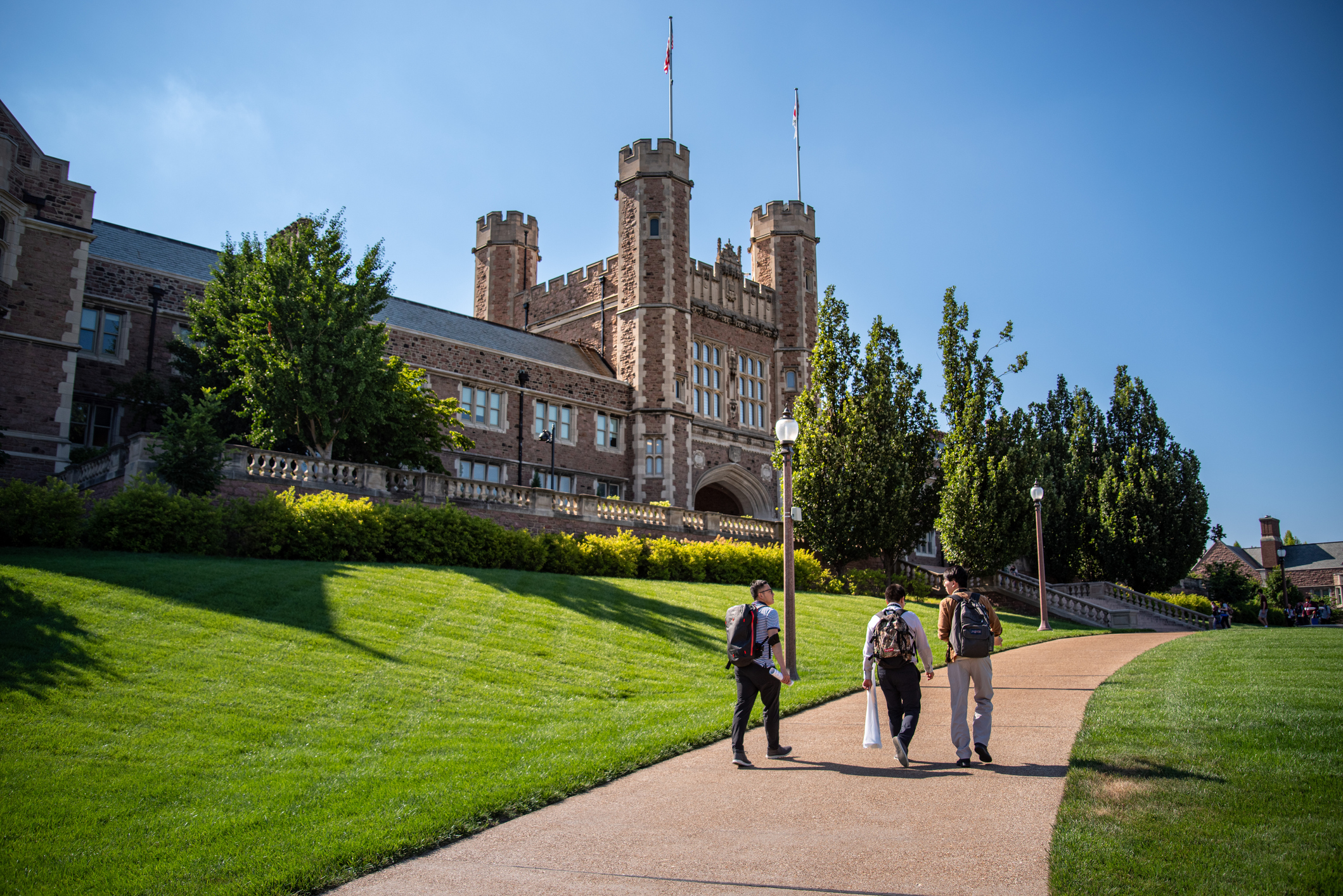College Scholarships: Beyond Financial Aid
By Bethany Scott and Tonya Post, College Advisors
Providence Classical School students flourish at a wide range of colleges and universities. As their college advisors, we encourage students to seek a community that fits their needs academically, socially, and financially. This can look different to each person, and our students have found their homes at private universities, Christian schools, large state institutions, and everywhere in between.
Because of the rising cost of tuition, a primary factor that comes into play when applying to colleges is affordability. Below are common questions we answer to help Providence families navigate scholarship opportunities and find colleges that are a wise financial choice.

Photo credit: Philip Rozenski
1. What is cost of attendance (COA)?
COA is the full cost before any aid has been awarded (also known as sticker price) and includes tuition & fees, food & housing, books, transportation, and personal expenses. Keep in mind that COA may be higher at certain schools (ex: private universities). However, many of these institutions give generous merit-based packages.
2. How can I determine my expected final cost?
Families can use a tool found on each college’s website called the Net Price Calculator to get an estimate of what they would potentially pay at each institution. While just an estimate, this tool can help you begin to prepare for and understand college expenses. COA will often be different than the amount generated by a Net Price Calculator.
3. What is the difference between financial aid and merit-based scholarships?
Financial aid is a federal assistance program that families apply for by completing the Free Application for Federal Student Aid (FAFSA). Financial aid packages awarded to students can include a mix of grants (don’t have to be paid back) and loans (must be paid back) based on a family’s income. Colleges will also use information obtained by the FAFSA to award additional institutional aid that is tied to family income. Many private institutions ask for families to also complete an application called the CSS Profile to gather income data to consider when offering institutional aid to students based on family income.
Merit-based scholarships, on the other hand, are based on academic achievements, do not have to be paid back, and do not consider family income information. Colleges will share details about these opportunities through their freshman admissions website and/or links about scholarships and financial aid. Some will share rubrics about what academic standards will receive awards, and other schools will share general ranges of GPA/test scores that typically receive merit-based scholarships.

Photo credit: sengchoy
4. What do colleges look for to determine merit-based aid?
Students will get the most merit aid from an institution based on their high school GPA and the strength of their transcript. This doesn’t mean that a student will only get money if they have a pristine transcript. Families should investigate colleges that reward the grades their students have produced. Many colleges have formulaic scholarship tables on their websites that tell you how much merit money you are likely to receive. With thousands of institutions to choose from, students can find options that will reward their abilities.
In College Advising at Providence, we meet with each family junior year to help them craft a balanced college list that includes several schools where their student would be eligible for merit-based aid. This includes conversations about our popular Texas flagship universities (ex: UT-Austin & Texas A&M). Due to their high selectivity and affordability, it is rare for any student (not just at PCS) to receive merit-based aid at these two schools. However, Providence students have been quite successful at getting merit-based aid from out-of-state public universities and many private institutions.
5. Do test scores play a part in scholarships now that many schools are test-optional for admissions?
Yes! While some schools no longer require test scores for admissions, many will still require scores for some of their merit-based scholarships. We encourage students to take the SAT, ACT, and/or the Classic Learning Test (CLT) and then discuss with us how they should use their scores.
6. Are students ever awarded scholarships for areas other than grades or test scores?
Yes! Along with many automatic, academic-based merit scholarships, colleges typically offer additional scholarship opportunities that look at other characteristics and have additional application requirements (essay, resume, interview, etc.). These scholarships can be based on a variety of things like leadership, service, and academic major. Selectivity can vary, and some combine academic merit with the other characteristics listed above. In recent years, we have had Providence students honored as a Forty Acres Scholar (UT-Austin), Getterman Scholar (Baylor), Chancellor Scholar (TCU), Trustee Scholar (Lipscomb), and CEAT Scholar (Oklahoma State).

7. What about athletic scholarships or other talent-based scholarships?
Students contemplating continuing a sport as a college student should begin contacting colleges early in their high school career about potential opportunities and register with the NCAA website. The recruitment process can be intense and time-consuming, so families that start early seem to be less overwhelmed. Also, it’s important to understand that very few athletic scholarships cover the total cost of attendance (aka full-ride), so setting correct expectations is important.
Outside of athletics, many talented students have opportunities to gain supplemental scholarship money through the arts, for example, chorus, marching band, and orchestra. Students interested in these areas should reach out to departments/campus organizations to learn about auditions or other requirements.
Recently, Providence Classical School has had students recruited athletically for rowing, gymnastics, volleyball, cross-country/track, dance, and soccer. We have also had a student offered scholarship money for participating in the orchestra.
8. Should we also look into outside scholarships?
We encourage families first to prioritize finding money from an institution. Once a family has maximized those opportunities, we then say to look at scholarships offered by parent employers and other local options such as organizations the student is involved in, community organizations, their church, etc. The College Advising Office at PCS shares relevant local scholarship opportunities with our students. The final option would be a national scholarship database search. These searches typically provide smaller scholarship amounts, and the competition pool for these options is much larger, i.e. looking for a needle in a haystack.
9. Are scholarships negotiable?
The short answer is yes. We tell our families it never hurts to ask! We have had several PCS families successfully obtain more merit-based aid by contacting financial aid offices and their admissions counselors. These examples come from private institutions who typically have more room to negotiate than a public university. It’s important to have an exact and realistic number in mind that you need to help fill the gap (ex: $2000 more a year could help our family make this school work).

Providence Classical School provides a classical Christian education that gives our students the tools to excel wherever they choose to attend college. They have been trained to write well, argue winsomely, and connect with their professors through intentional conversation. In College Advising, we coach our students as they work on their college applications on how to advocate for the classical education they have received through their essays, resumes, and interview preparation. These skills make them strong contenders for merit-based scholarship opportunities and standouts on their university campuses once they arrive.
For more information on classical Christian education at Providence Classical School,
watch our film, and schedule a tour today!

About Bethany Scott:
Bethany was first introduced to helping students navigate higher education when she served as a Peer Advisor while completing her business degree at the University of Texas at Austin. After graduation, she joined the UT Admissions team as an Admissions Officer working with high school counselors and students, facilitating the application process, and evaluating applications from prospective students. She completed her UCLA Certification in College Counseling in 2016 and joined College Direction Counseling Services as an Independent Educational Consultant. She joined the Providence College Advising office in 2021 after being a PCS parent for more than 10 years. Bethany believes that preparing for the years after graduation requires prayerful consideration, meditating on God’s word, and keeping an eye toward our greater mission as Christians to impact the culture for Christ. Bethany and her husband, Kyle, have two PCS Paladins — Brady (Class of 2023) and Berkeley (10th grade).

About Tonya Post:
Tonya earned her degree in speech communication with a minor in marketing from Texas A&M. She worked in the corporate world for several years before leaving to stay home with her children, homeschooling each of them until they enrolled at Providence. She and her husband, Christian, have been married for 35 years and have four children who all graduated from PCS — Carter (2011), Caitlin (2014), Colin (2018), and Cara (2021) — and two beautiful grandchildren! Tonya has served the PCS community since 2014 helping Upper School students and families prepare for and navigate the college admissions process. In her free time, she loves working out, reading, and spending time with family and friends.
Read more about College Advising and life after high school on the Providence Classical School blog!
Interview with a PCS Graduate — Emory Fields
Header image credit: Sakorn Sukkasemsakorn








